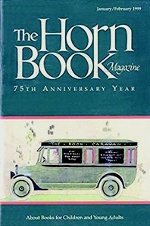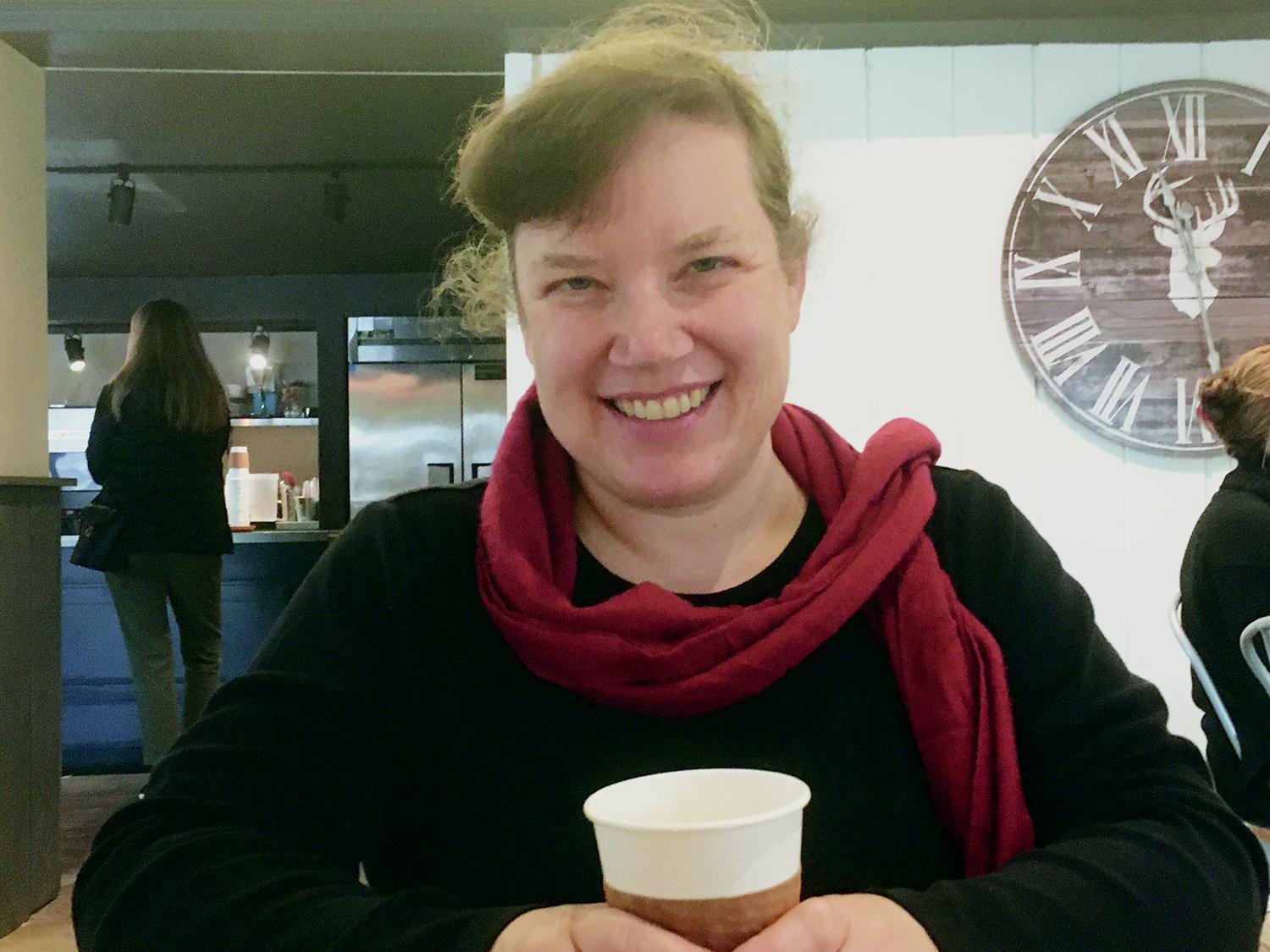Field Notes: A Temporary Expert: Fact-Checking for the Horn Book
I worked for The Horn Book, Inc., in the early 2000s, back when the office was at 56 Roland Street in Charlestown, Massachusetts, near Sullivan Square. As I advanced from summer intern to editorial assistant and eventually associate editor, I had a variety of tasks to do, but one of the more interesting and educational jobs throughout was fact-checking.
I worked for The Horn Book, Inc., in the early 2000s, back when the office was at 56 Roland Street in Charlestown, Massachusetts, near Sullivan Square. As I advanced from summer intern to editorial assistant and eventually associate editor, I had a variety of tasks to do, but one of the more interesting and educational jobs throughout was fact-checking.
In case you weren’t aware, everything that goes into the Magazine is fact-checked. [Editors’ note: There’ve been a few misses over the years, but we try not to dwell on that misidentified dog breed or that wrong pluralization of the word journey.] If an article references Dr. Seuss, we check to make sure Seuss is spelled correctly, and whether he preferred Dr. or Doctor (he is styled Dr.). Doesn’t matter if you think you know; you have to go look it up. The same goes for any dates, direct quotations, book titles, proper nouns, statistics, etc. Fact-checking is what kept the publication from misprinting Magid Fasts for Ramadan as Magid Feasts for Ramadan (disaster averted!). It can be tedious if you’re just double-checking CIP info, but more often, it’s fascinating.
 I was still an intern when I was handed my very first fact-checking job, going over articles for the seventy-fifth-anniversary issue of the Magazine — 1999, if anyone’s doing the math. Editor in Chief Roger Sutton had sought out articles about many of the greats:
I was still an intern when I was handed my very first fact-checking job, going over articles for the seventy-fifth-anniversary issue of the Magazine — 1999, if anyone’s doing the math. Editor in Chief Roger Sutton had sought out articles about many of the greats:
- Bertha Mahony Miller [note to fact-checker: no e in Mahony], proprietor of the Boston institution The Bookshop for Boys and Girls and, in 1924, founder of the Horn Book.
- Anne Carroll Moore [per fact-check: two ns, rs, ls, and os], the highly influential first children’s librarian at the New York Public Library, beginning in 1906; author of the Magazine’s long-running “Three Owls’ Notebook” column.
- Margaret A. Edwards, who began at Baltimore’s Enoch Pratt Free Library in 1932 and became one of the bulwarks of library service to young adults. An award bearing her name was established in 1988; its first recipient was S. E. Hinton.
Back then, at the turn of the millennium, I could do some of my fact-checking on the internet (which involves its own difficulties, since the internet isn’t fact-checked), but for information on these three worthies, I had to go to actual dead-tree books: The Spirited Life: Bertha Mahony Miller and Children’s Books by Eulalie Steinmetz Ross; Anne Carroll Moore: A Biography by Frances Clarke Sayers; and The Fair Garden and the Swarm of Beasts: The Library and the Young Adult by Margaret A. Edwards, all of which were in residence at the office. Reading large sections of the books in search of quotes, I became a temporary, uncredentialed expert on the founding mothers. Do you know the kinds of high standards, professionalism, and sheer energy they poured into the fledgling field of children’s librarianship? Meeting them through their writings was like encountering a force of nature.
 The office was fertile ground for fact-checking, since the shelves were filled with books we’d reviewed, as well as adult books about children’s literature. A couple of shelves held bound volumes of The Horn Book Magazine going back decades. Roger mentioned once that when he first became editor in chief, he took home the old volumes one by one and read them cover to cover. I think that was the means by which he brought the spirit and memory of all the former editors into our daily office life — talk about greats! Or perhaps it just comes to you when you sit in that big chair.
The office was fertile ground for fact-checking, since the shelves were filled with books we’d reviewed, as well as adult books about children’s literature. A couple of shelves held bound volumes of The Horn Book Magazine going back decades. Roger mentioned once that when he first became editor in chief, he took home the old volumes one by one and read them cover to cover. I think that was the means by which he brought the spirit and memory of all the former editors into our daily office life — talk about greats! Or perhaps it just comes to you when you sit in that big chair.
The bound volumes of past issues are a great place to re-discover skeletons in the children’s literature closet. As part of my fact-checking for the seventy-fifth-anniversary issue, I delved into the retrospective Kathleen Krull had written about the 1972 smackdown critic Eleanor Cameron gave Roald Dahl in these pages (calling Charlie and the Chocolate Factory “one of the most tasteless books ever written for children”) and his response (basically, Eleanor who?). The volumes could also be a source of unexpected joy. When Lissa Paul wrote a May/June 2005 article on Ted Hughes and Sylvia Plath, I had the pleasure of rummaging through the April 1959 issue to read the exquisite Plath poem then-Editor Ruth Hill Viguers had solicited, titled “The Bull of Bendylaw.” Its poetic puissance made me shiver.
 Sometimes, however, the sources I needed to fact-check weren’t available in the office or online, and that occasioned one of the other great things about the task: working “at large.” At a certain point, once I’d done what I could with facsimile editions, cover images, and the “Look Inside” feature on Amazon [note to editors: yes, this existed back then], I’d tell then–Senior Editor Martha Parravano that I’d be out the next day, and then I was free, set loose on Boston! I spent a lot of time learning the ins-and-outs of the research side of the Boston Public Library in Copley Square, mastering its arcane methods of requesting a book from the stacks, the particulars of which are lost to the mists of time but which involved tiny pencils, little scraps of paper, conveyor belts, and (I believe) a dumbwaiter. There were other places I frequented — I even got a reader card for the Main Reading Room of the Library of Congress on a Washington, DC, visit — but the library at Simmons College (now University) was another main haunt. Today the Horn Book office is located mere steps away from Simmons’s extensive children’s literature collection, but back in the day I’d tootle over there on my bike.
Sometimes, however, the sources I needed to fact-check weren’t available in the office or online, and that occasioned one of the other great things about the task: working “at large.” At a certain point, once I’d done what I could with facsimile editions, cover images, and the “Look Inside” feature on Amazon [note to editors: yes, this existed back then], I’d tell then–Senior Editor Martha Parravano that I’d be out the next day, and then I was free, set loose on Boston! I spent a lot of time learning the ins-and-outs of the research side of the Boston Public Library in Copley Square, mastering its arcane methods of requesting a book from the stacks, the particulars of which are lost to the mists of time but which involved tiny pencils, little scraps of paper, conveyor belts, and (I believe) a dumbwaiter. There were other places I frequented — I even got a reader card for the Main Reading Room of the Library of Congress on a Washington, DC, visit — but the library at Simmons College (now University) was another main haunt. Today the Horn Book office is located mere steps away from Simmons’s extensive children’s literature collection, but back in the day I’d tootle over there on my bike.
My crowning achievement as a fact-checker was tracking down extant copies of a publication from the 1960s that Simmons had in its collection: the Bulletin published by the Council on Interracial Books for Children (CIBC). In her March/April 2003 article “Multiculturalism Takes Root,” Barbara Bader made reference to a writing contest sponsored by the CIBC and won by Walter Dean Myers, and verifying that was the last item on my fact-checking to-do list. There was some doubt I’d be able to find what I was looking for, since I wasn’t sure of the issue date, but at last I struck pay dirt. Crouched in a dark back aisle in the Simmons library, with a file box on the floor beside me, I gazed down at those tattered, yellowing sheets, organized by a librarian perhaps long retired, and felt a deep sense of connection and timelessness. (The Bulletin has since been digitized, and you can see it yourself on the University of Wisconsin–Madison Libraries’ website.) The topics covered — segregated textbooks (Vol. 1, No. 1); Dr. Dolittle as colonizer (Vol. 2, Nos. 1 & 2); and hey, look, a young Walter Dean Myers winning the writing contest (Vol. 2, Nos. 1 & 2) — were groundbreaking when the articles were published, and still pertinent today. And being able to verify Bader’s anecdote after traveling miles — and decades — to find it was a moment of transcendent satisfaction.
Nowadays I’m fact-checking for the company again. I work remotely, solely on the internet (more’s the pity). But it has given me many new opportunities to gain expertise, if briefly, in a variety of subjects. I’ve watched archival footage of storyteller-librarian Pura Belpré, listened to Aretha Franklin sing, dug into the bylaws of REFORMA to try to verify a hyphen. I’ve researched Tlingit naming conventions, hunted through obituaries, and looked up the author, title, and publisher of Christina Soontornvat’s book All Thirteen: The Incredible Cave Rescue of the Thai Boys’ Soccer Team eleventy-billion times, one time for each award it has won. I miss being in the office and seeing Roger, Martha, and the others every day, but I’m happy to be back in the Horn Book family for now, checking the facts.
From the January/February 2022 issue of The Horn Book Magazine.

RELATED
ALREADY A SUBSCRIBER? LOG IN
We are currently offering this content for free. Sign up now to activate your personal profile, where you can save articles for future viewing.






Add Comment :-
Be the first reader to comment.
Comment Policy:
Comment should not be empty !!!